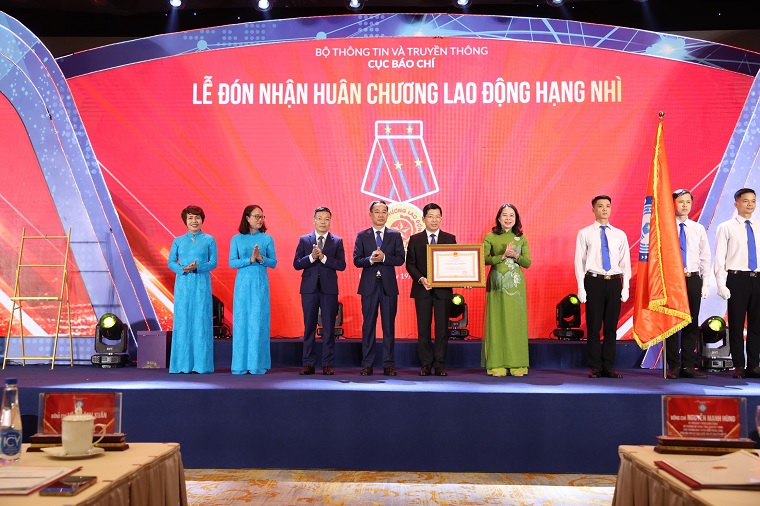
The Press Department celebrates its 20th anniversary and receives the Second Class Labor Medal.
The Resolution of the 13th Party Congress has identified the goal of "Building a professional, humane and modern press and media". Digital transformation of the press in Vietnam is for the purpose of building press agencies in a professional, humane and modern direction; fulfilling the mission of information and propaganda to serve the revolutionary cause of the Party and the cause of national innovation. The Ministry of Information and Communications is responsible for how the press can arouse and ignite the aspiration for Vietnam to develop prosperously and happily.
The growth of the Internet in particular and technology in general has increasingly promoted and diversified the public's need for information, changing management thinking, production methods and models. The speed of information and information control of electronic journalism requires advanced and modern content management technology. In addition, electronic newspapers and magazines also use more diverse information dissemination methods than traditional paper newspapers, so the technology infrastructure not only serves the purpose of purely archiving published content like paper newspapers but also needs to be directed towards controlling content according to the news dissemination flow, combined with the assessment of the level of influence of news or disseminated content on viewers in order to provide timely directions from the State management agency.
The Ministry has assigned the Press Department to invest in the project "National press and media data depository and analysis system". The construction of the Digital Depository Center has tools to analyze and evaluate news articles of press agencies to see whether the press agencies are operating according to their principles and purposes; what the political trends of each press agency are like, a very important tool for press management in the digital environment.
In addition, the Press Department is tasked with developing a virtual assistant for the press sector, to help make press management more comprehensive and effective, reduce pressure on staff, so that they can focus on researching, finding and proposing, advising on policies, mechanisms, and solutions to support the digital transformation of press at press agencies.
Organized training and guidance on the trial use of digital technology solutions to monitor and report copyright infringement in the Media Hub digital environment for more than 50 press agencies, radio and television stations that registered for trial use.
In short, the press today changes every day, so it requires new perceptions in press management, which must rely on technology.
Effective state management of digital transformation journalism will also promote, motivate and greatly support each press agency in the digital transformation process.
The year 2023 marks an important turning point in the development of Vietnam's revolutionary press. For the first time, the press sector has a strategy issued by the Prime Minister, which is the Press Digital Transformation Strategy to 2025, with a vision to 2030 according to Decision No. 348/QD-TTg dated April 6, 2023. This is an important basis to raise awareness for press management agencies and heads of press agencies about digital transformation; providing major directions for the press to innovate technology, develop the market of readers, listeners, viewers, and ensure propaganda goals.
The Ministry has also issued a set of indicators to assess and measure the maturity of digital transformation in the press, helping press agencies determine which stage they are in the digital transformation process, thereby building a roadmap, plan, and appropriate solutions for effective digital transformation. December 2023 is also the first time the Ministry announced the maturity level of digital transformation of press agencies.
Today's press agencies have had more distinct changes and better awareness of digital transformation. Many press agencies have found their own path in digital transformation, even though they are only the first bricks. Awareness and thinking about digital transformation have also gradually "permeated" into each press agency. However, it is still necessary to objectively recognize that digital transformation work in most press agencies still has a lot of work to do when the constant development of multi-platform, multimedia journalism, data journalism with digital tools such as artificial intelligence (AI), blockchain technology has been creating both opportunities and challenges for press agencies, as well as journalists. AI and technology can become virtual assistants for the press, but we also have to face the risks of fake news, misinformation created by AI and other digital technologies, the challenge of illegal use of data capital, and press copyright in the digital environment. This forces the press to find solutions to improve its competitiveness, protect copyright, fight against fake news, and push back bad, toxic, distorted, and misleading information, so that press information becomes the mainstream in digital space.
The announcement of the digital transformation maturity level in 2023 shows that many press agencies are at a weak level of digital transformation maturity (63%). This number does not reflect everything, but it is also a signal for us to see that we still have a lot of work to do, so that each year, each period, the % of press agencies with Good and Excellent digital transformation increases, which means that the % of press agencies with weak digital transformation will gradually decrease. Many press agencies with weak digital transformation have the following reasons: (i) Many governing bodies have not paid attention to approving and issuing plans to implement the press digital transformation strategy (25.27% of press agencies are allocated funding for digital transformation by their governing bodies); (ii) Press agency leaders have not paid due attention to implementing digital transformation (only 34.8% of press agency leaders are the ones who preside over and direct digital transformation; 43.59% of press agencies have developed a press digital transformation plan/program); (iii) Press agencies have not paid attention to investing in applying digital technology in editorial management and content production (only 12.82% apply artificial intelligence to content production processes to optimize operations; 16.72% have a centralized data analysis and processing platform; 16.12% are interested in improving the reader experience.); (iv) Small-scale press agencies (literary and art magazines, science magazines) do not have enough resources (both human and material) to implement digital transformation.
In the coming time, the Ministry of Information and Communications will focus on implementing key solutions and tasks to orient and promote digital transformation of the press. In particular, the goal in 2024 is to reduce the number of press agencies with weak and average digital transformation from 75% to 60%; with good and fair levels from 22% to 35%; with excellent levels from 3.66% to 5%.
Along with that, continue to urge ministries, branches and localities to fully implement the key solutions and tasks set out in the Press Digital Transformation Strategy to 2025, with a vision to 2030; Press management agencies arrange conditions (both human and material resources) for affiliated press agencies to implement digital transformation. The Ministry will also update the Index to assess and measure the maturity level of press digital transformation; guide press agencies to apply the Index to assess and measure; publish the maturity level of press digital transformation annually. Update the Technology Map for the press sector, which is the basis for press agencies to develop investment plans to develop technology to serve digital transformation.
Effectively deploy the activities of the Press Digital Transformation Support Center to support and promote press agencies to carry out digital transformation, focusing on small-scale press agencies that lack resources for digital transformation and have a weak level of digital transformation maturity. At the same time, organize training and fostering (direct and online), ensuring the goal that by 2025, 100% of leaders, reporters and editors of press agencies will be trained and fostered in knowledge and skills on press digital transformation. Survey press digital transformation models, optimize revenue sources and increase revenue to record and disseminate press digital transformation experiences./.
Source: https://mic.gov.vn/chuyen-doi-so-co-quan-quan-ly-bao-chi-day-la-viec-phai-lam-va-phai-lam-rot-rao-197241224210340545.htm





![[Photo] Action for the Community tells stories of enduring journeys – both intimate and great, yet quiet and determined](https://vphoto.vietnam.vn/thumb/1200x675/vietnam/resource/IMAGE/2025/11/15/1763179022035_ai-dai-dieu-5828-jpg.webp)


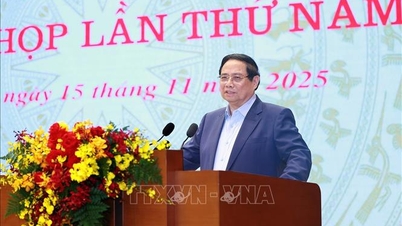





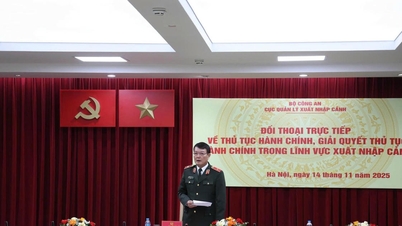

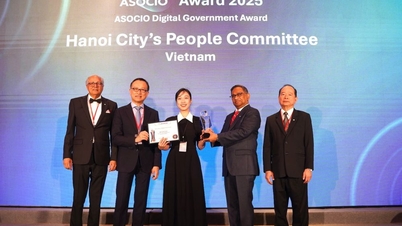





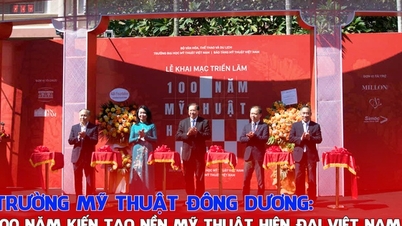







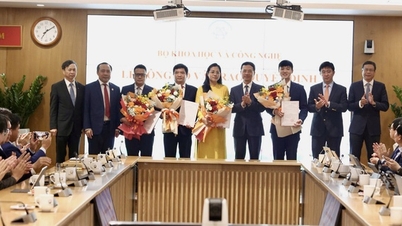

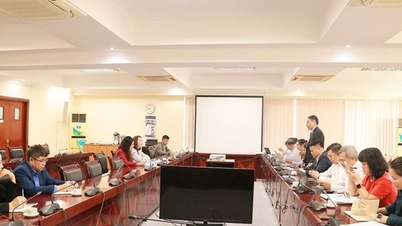

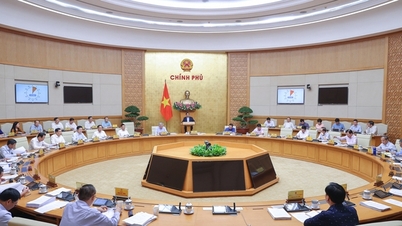
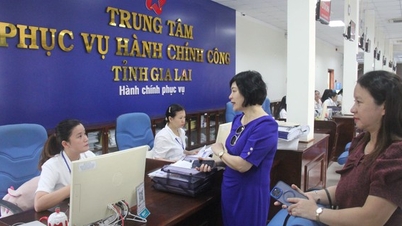







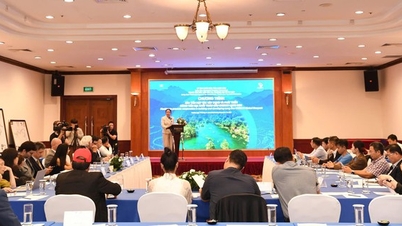








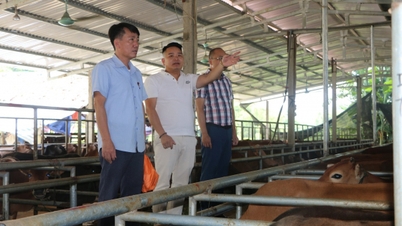



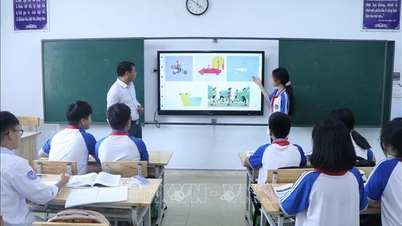


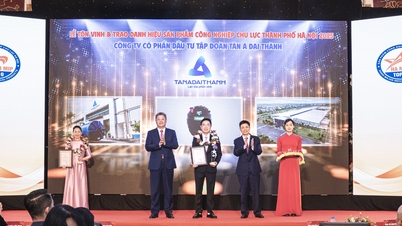


















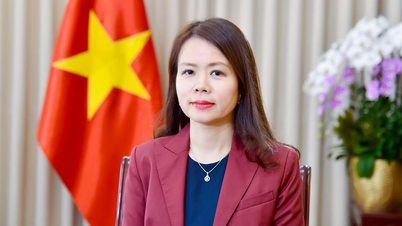





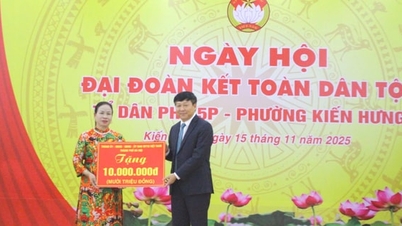
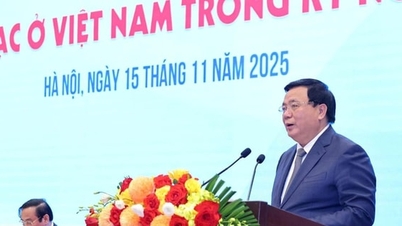




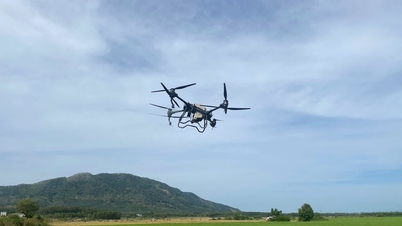












Comment (0)